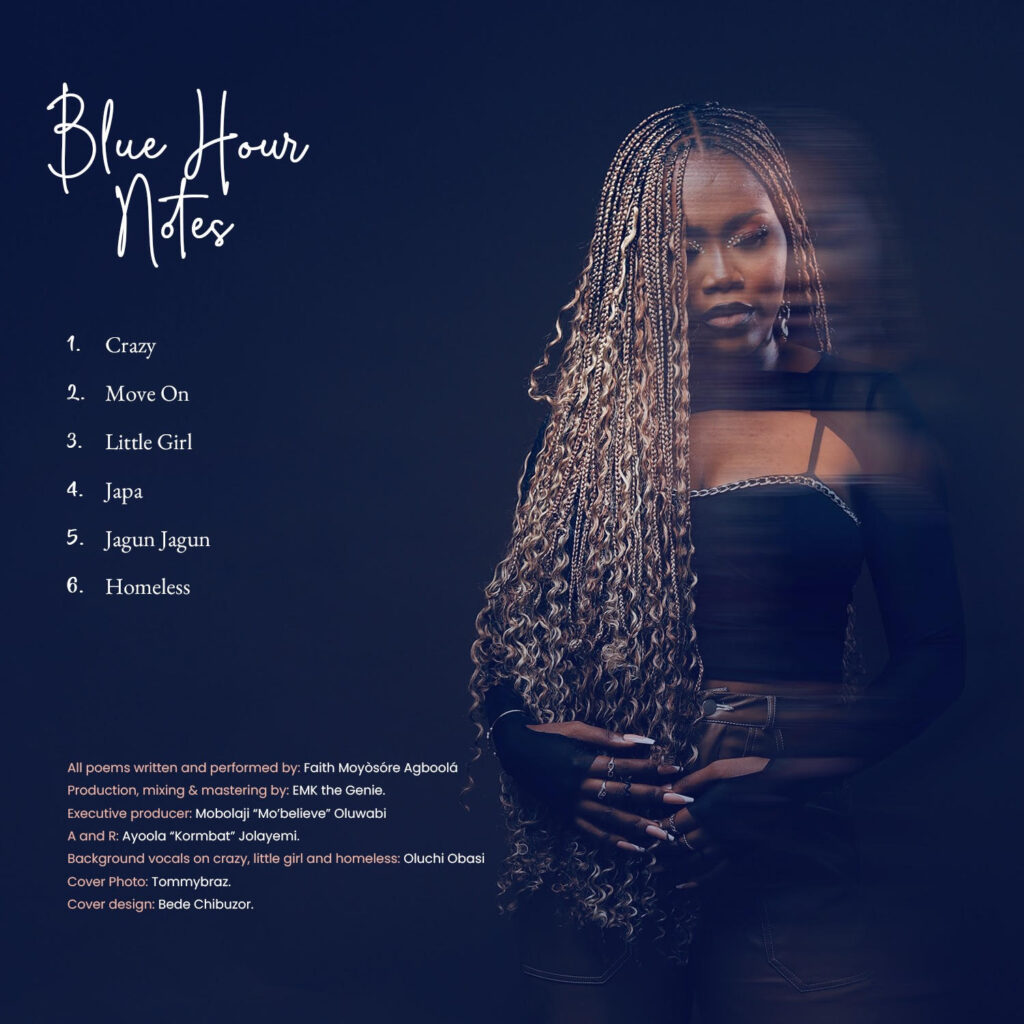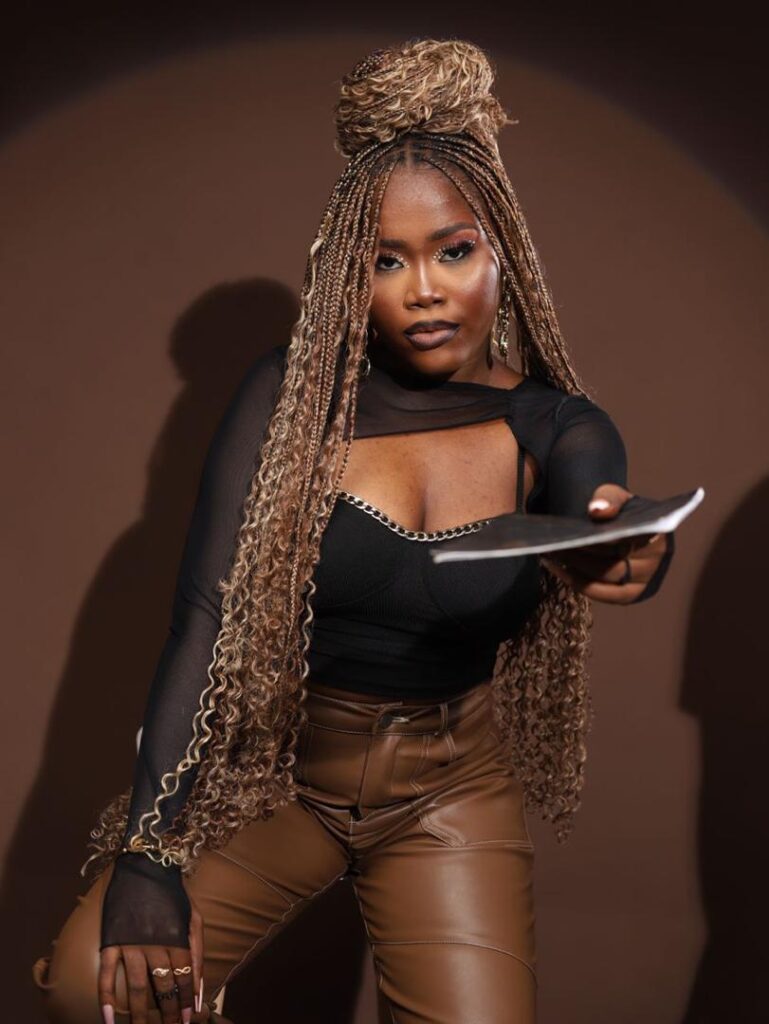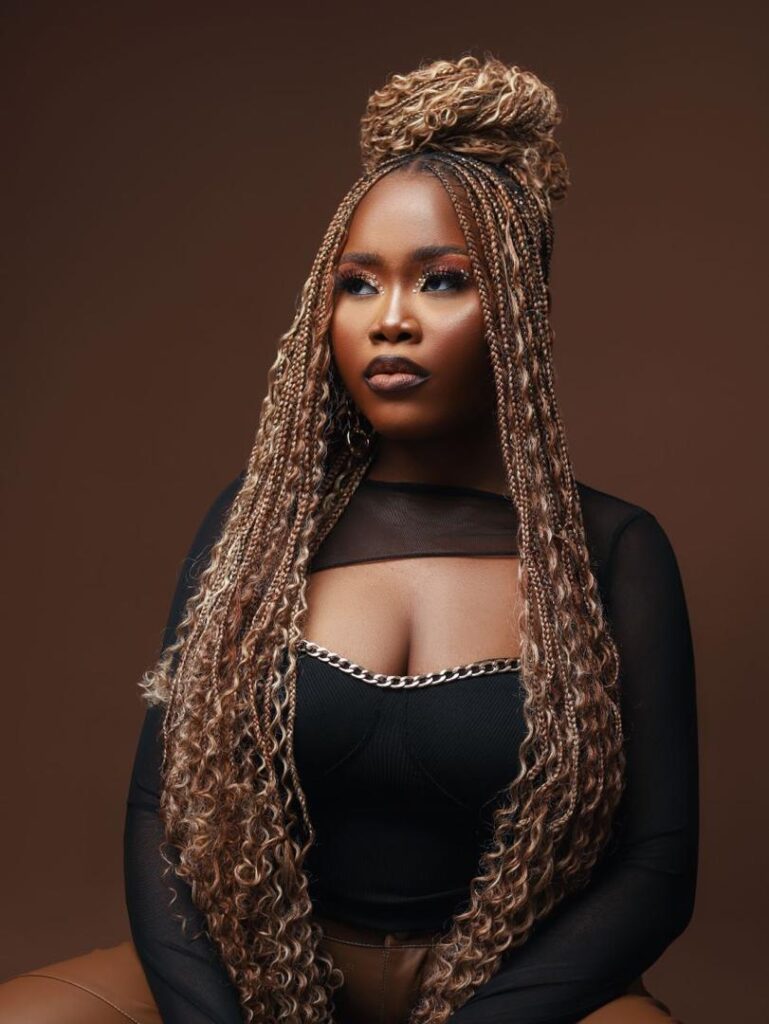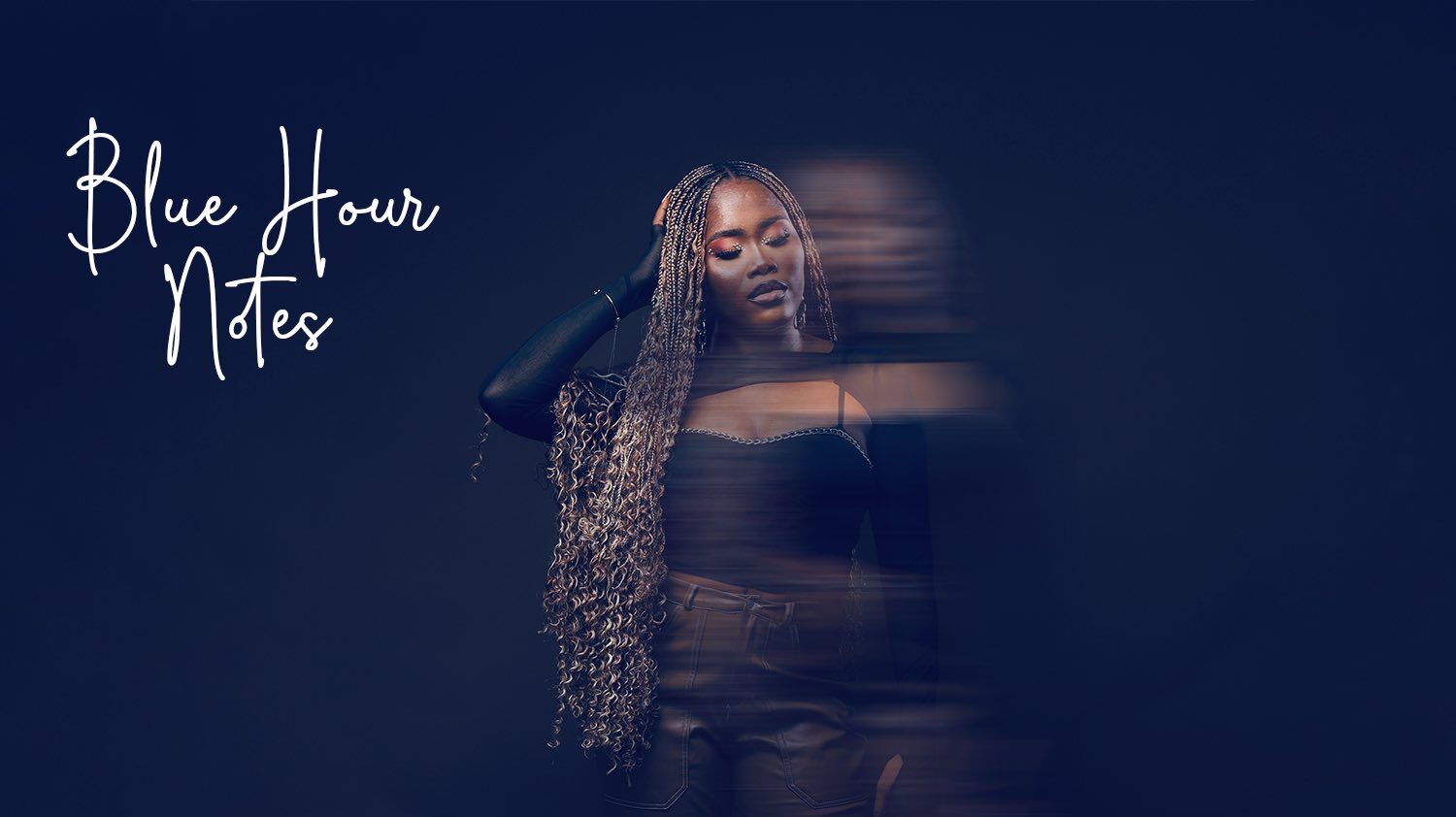by Angel Nduka-Nwosu
Sometimes, all one needs to remember that healing and joy is indeed possible, no matter the storms that besiege one’s heart, is a journey into any of the arts. It could be poetry. It could be a road trip into visual art. It could be drowning in the soothing tones of a singer.
For me, that journey into realigning myself away from the pain of a few lost loves and disappointments has come in the form of taking a flight through the words of the debut spoken word poetry album of Faith Moyosore Agboola.
Faith Moyosore Agboola is a performance poet, writer and cultural producer.
She has performed poetry on various stages and media platforms, including the Netherlands Embassy Nigeria, TEDxAlausa, GT Bank’s You Read, Kokopelli Night of Storytelling, Faaji Friday, Ubuntu Festival, Lagos International Poetry Festival, City FM and WFM 91.7 among others. She has also shared her ideas as a creative entrepreneur on global stages such as the Dubai Expo 2020, Africa NXT Festival and the Abuja Literary Festival.
The founder of The African Writers and the convener of African Writers Meet, she was awarded the fully-funded Chevening Scholarship in 2020 and in July, 2023, she was nominated as the “rising talent of the year spoken word” in the APVA awards.
Her debut poetry album is titled Blue Hour Notes, has seven tracks and speaks on issues such as bleaching, disparate beauty standards, healing from heartbreak, the effects of toxic masculinity in soldiers and the recent wave of “japa” or immigration amongst Nigerians.

Of the seven tracks in the album, three stood out for me due to their succinct way in capturing several issues that women, Nigerians and indeed humans world over will see themselves in.
The first one was the first track of the album called Crazy. In it, Agboola spoke on an angle of abuse that is too often ignored in the general discourse surrounding women in relationships. She spoke on emotional abuse and how incidences like gaslighting and name calling by a partner can lead to a woman actually questioning her sense of belief and worth in herself.
What struck me was the manner in which Agboola portrayed how numerous women have unknowingly accepted it as the norm for them to be on the receiving end of verbal battering. It does not end in victimhood though.
The track went on to verbalize how emotional abuse should never be accepted.
The second poem in the album that I loved was Little Girl. This poem spoke greatly to me as someone who though not dark skinned, grew up on the receiving end of comparisons to my light skinned sister.

In it, Agboola mentions how bleaching does not just happen out of the blue. It is instead born out of a desire to be seen and loved and not to be seen and mocked for one’s colour. She spoke of a young woman using her pocket money savings to buy her first bleaching cream before she turned fourteen.
Take the lines: At twelve, she gathered the naira notes she was given for being a well behaved child and bought her first bleaching cream.
However, Agboola continually reiterated in the poem that bleaching can bring on a different kind of attention. A nastier kind of attention.
The attention that occurs from people mocking a woman’s “dark knuckles” and greenish yellow thighs that spoke of bodies that were once the rich dark colour of freshly harvested cocoa pods.
This poem serves as a wake up call to the recent increase in bleaching children and bleaching creams that seems to be pervading most parts of West Africa.
It is a reminder that harmful beauty standards can lead to a lifetime of regret in the women who fall victim to the belief that there is something wrong with dark skin as it is.
In another poem eponymously titled Japa, the poet spoke of the recent wave of hardship induced migration in Nigeria. What I particularly love about this poem, is that the stories in it are from a place of experience and first hand knowledge about Nigerian immigrants in places like the United Kingdom and Canada. For those who are unaware, Ms. Agboola herself, is a Chevening Scholar who has studied outside Nigeria.
Throughout the poem, one thing that stands out is the reality that as okay as it is to want greener pastures for one’s family, it is not always guaranteed that greener pastures will indeed be genuinely greener than what exists back home.
For poetry lovers, it is not just the issues the poems speak on that will keep one listening. Faith Moyosore Agboola has a voice that bends and rises in accordance with each emotion she wants to convey.
The use of music as an accompaniment to the spoken words from the poet creates a soothing effect such that no matter the pain in the words sometimes, we anticipate and look forward to the sweetness that comes after and the guarantee of joy in the poet’s words.

The language of the album in itself is one that is simple yet striking in how it portrays the struggles that young people in Africa and indeed the world encounter.
It is a body of work that is well on its way to making Ms. Agboola one poet whose words are intentional about placing Nigerian art and culture in the international map.
Blue Hour Notes is one that is timely, relevant and resolutely pro-woman and African in its documentation.
It is one that listeners will think of when they want a reminder and a throwback to the truth that indeed with determination, women, youths and Nigerians can mine out hope no matter the storms that besiege us as a people.





